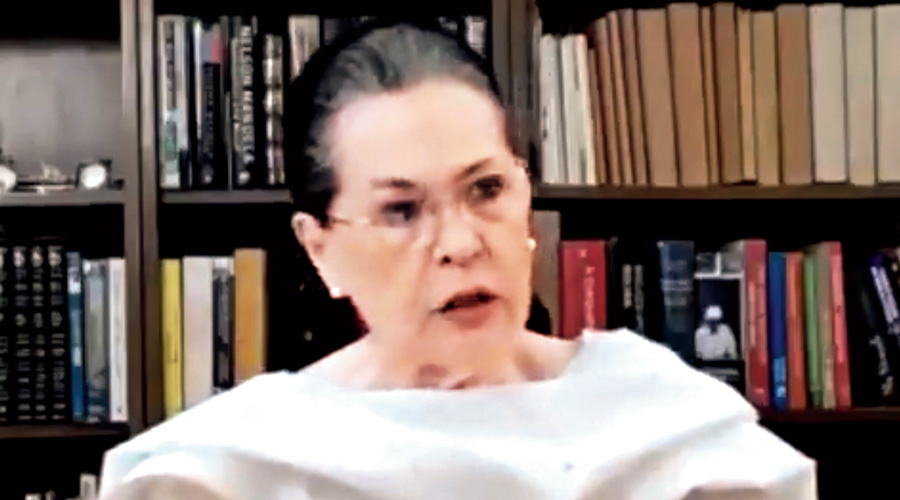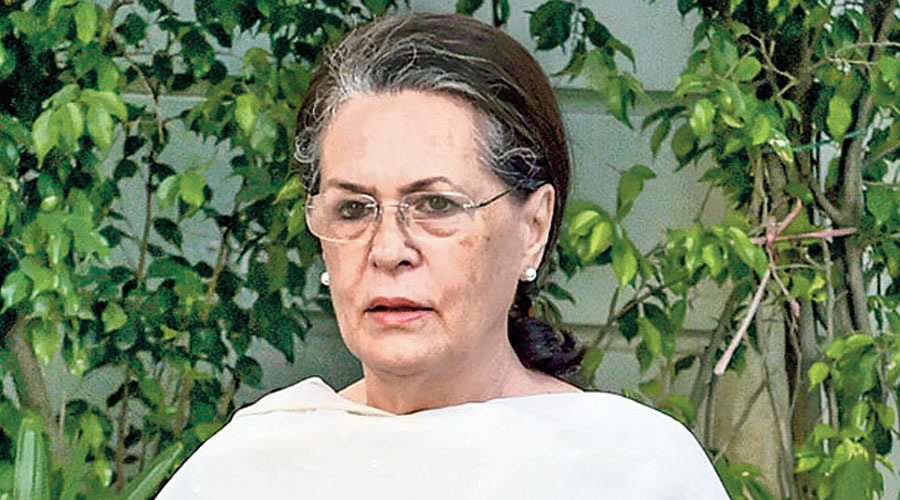The Congress on Saturday said India was devastated by the second Covid-19 wave because of “colossal mismanagement” by the government, pointing out that Prime Minister Narendra Modi continued to treat the crisis with callousness by remaining engrossed in the Bengal election instead of sitting at his desk in Delhi to coordinate efforts to salvage the situation.
The Congress Working Committee listed the Prime Minister’s specific failures in an extremely critical resolution that said: “India’s first case of Covid-19 was detected on January 30, 2020. India’s first vaccine shot was administered on January 16, 2021. Between the two dates, and thereafter, there is a saga of tragedy, incompetence and colossal mismanagement.
“As we meet today, the cumulative number of infections is 1,45,26,609 and the cumulative death toll is 1,75,673.”
Briefing on the CWC deliberations, former finance minister P. Chidambaram said in response to a question: “It is shocking callousness on the part of the Prime Minister to be addressing rallies in Bengal instead of staying in Delhi and coordinating among ministries to control the situation. We all know this is a one-man government and all the decisions are taken by the Prime Minister’s Office.”
Chidambaram added: “Modi should have been in Delhi, sitting at his desk, coordinating augmentation of supplies, talking to chief ministers, solving problems. Is it the time for the Prime Minister to hold mega rallies and spend crores of rupees on mobilising crowds? Where would the Prime Minister be if there was a war today? We hope the people of Bengal will take note and give a befitting reply to his callousness.”
Senior leader Ajay Maken, who jointly briefed the media with Chidambaram, said: “The Centre captured all the powers under the Pandemic and Disaster Management Acts and the Prime Minister is busy in pure politics by remaining in Bengal the whole day. States have no power. Can the states decide on importing oxygen? Even minor details like who gets vaccine are decided by the Centre. Who should be blamed for the failures? The Prime Minister is responsible.”
Explaining what a Prime Minister’s foresight and dedication could have achieved, Chidambaram said: “The ministers ridiculed Rahul Gandhi when he sought clearance for vaccines available in the world. We have finally cleared the vaccines but are those firms in a position to supply to us now? The US and the European countries have already placed their orders and booked the entire production in advance. The Serum Institute said it needs Rs 3,000 crore to ramp up production. A Congress government would have sanctioned the amount immediately, without cabinet approval.”
Responding to a question about Modi’s plea to check celebrations at Kumbh in Haridwar, Chidambaram asked: “How many days has the Kumbh Mela gone on already? This is a case of locking the stable when the horses have bolted.”
The Kumbh, where lakhs of people have gathered, has been on for more than two weeks.
To another question on the eight-phase Bengal polls, the Congress leader said: “Kerala, Tamil Nadu and Puducherry together have 404 seats where polls happened on a single day. Why can’t Bengal, which has 294 seats, have polls in one day?”
Stressing the need for urgent corrective measures to control the spread of the virus and avoid catastrophic consequences, the CWC resolution said: “The initial response measures of the central government were ludicrous, to say the least. The Prime Minister went on national television to exhort people to clang plates; and after two weeks he went on national television to exhort people to light lamps. Medical experts held back their criticism of such superstitious rites; and knowledgeable persons cautioned the government that it ought to take scientific measures to confront the pandemic.”
Listing the failures of a Prime Minister who was addressing two or three rallies a day in Bengal and other election-bound states when the second Covid wave was crippling the country, the resolution said: “Failed to create sufficient public awareness that a waning pandemic could be a precursor to a second wave that may be more devastating than the first wave, failed to rapidly scale up the production and supply of the two approved vaccines, failed to resort to compulsory licensing and production of the two approved vaccines in other pharma manufacturing facilities in India.”
The resolution continued: “Failed to universalise vaccination, to get rid of pre-registration and bureaucratic control over the vaccination programme, to leave the vaccine rollout to the state governments and public and private hospitals, to adopt a need-based, fair and equitable allocation of the vaccine doses to states, to curb the exports of large quantities of vaccine doses to other countries, to provide adequate funds to the state governments.”












